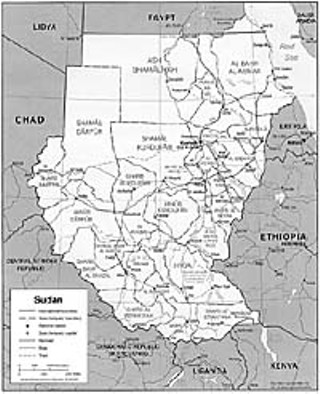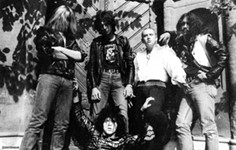Naked City
Terror: What Those People Do
By Michael King, Fri., Dec. 14, 2001

On Sunday, Dec. 2, Austin American-Statesman editor Rich Oppel denounced slavery in Sudan, thereby heroically risking the outrage of those thousands of his readers who support slavery in the Sudan ("Sudan: Where slavery is merely a 'PR Problem'"). The occasion was an appearance at UT's LBJ School by Elfatih Mohamed Erwa, Sudan's ambassador to the United Nations. Oppel sternly lectured Erwa for his distortions of the historical record, for his claims that stories of slavery are slanders by Western journalists and politicians, and for his hypocrisy in defending the brutal, terrorist-harboring government of Sudan. And for those credulous readers inclined to accept Erwa's reassurances (not that they would know of them from reading the Statesman), Oppel warned gravely, "You should not believe him."
Oppel noted only in passing that in 1998 the U.S. government "struck a Khartoum chemical plant suspected of supplying terrorists in the bombing of U.S. embassies in Africa," and warned that the U.S. "could strike again." He offered not a syllable of regret -- nor even a misgiving -- about a peremptory attack based on no substantive evidence that the U.S. was able to defend, which destroyed a pharmaceutical plant in one of the poorest nations on earth.
For the record, here is what Jonathan Belke of the Near East Foundation (a U.S. developmental aid foundation) had to say a year later (Boston Globe, August 22, 1999) about the consequences of that same U.S. attack: "[Without] the lifesaving medicines [the destroyed facilities] produced, Sudan's death toll from the bombing has continued, quietly, to rise. Thus, tens of thousands of people -- many of them children -- have suffered and died from malaria, tuberculosis, and other treatable diseases. ... [The Al-Shifa plant] produced 90% of Sudan's major pharmaceutical products. ... Sanctions against Sudan make it impossible to import adequate amounts of medicines to cover the serious gap left by the plant's destruction ... [The] action taken by Washington on Aug. 22, 1998, continues to deprive the people of Sudan of needed medicine."
No doubt Our Beloved Hometown Editor will soon get around to denouncing rampant state terrorism by superpowers -- particularly the hypocritical government of the nearest superpower, which persists in its pernicious "public relations" campaign that it alone, among all the nations of the earth, has the right to judge who shall live and who shall die. But first, of course, there's that much-overlooked matter of slavery in Sudan.
Got something to say on the subject? Send a letter to the editor.








